Lela Nargi, editor
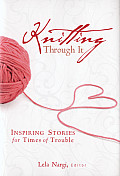 A colleague brought in Knitting Through It for my knitting coworker and I to read. I was eager to read it because the topic seemed like the perfect fit for a new year full of upheaval. Using knitting, the process of knitting, to "see us through adversity" (13) is something to which I can most definitely relate and I thought reading about others doing the same might be cathartic. Unfortunately, Knitting Through It was a disappointment.
A colleague brought in Knitting Through It for my knitting coworker and I to read. I was eager to read it because the topic seemed like the perfect fit for a new year full of upheaval. Using knitting, the process of knitting, to "see us through adversity" (13) is something to which I can most definitely relate and I thought reading about others doing the same might be cathartic. Unfortunately, Knitting Through It was a disappointment. Knitting Through It is a short-story collection arranged topically--Knitting through... Charity, Illness, Smoke, Grief, Work, Unemployment, Politics, Prison, War, Poverty, Industrial Development, Families in Motion, Relationships. Contemporary writing is supplemented by life stories collected in the 1930s and 1940s,1 as well as patterns and photographs (mostly historical). While the structure should work in theory, in practice Knitting Through It reads more like the contents of someone's idea file than of a curated collection. For example, "Knitting through Prison" (pages 101-113) consists of an excerpt from an interview that mentions a "profitable little trading business" that the interviewee's father had developed while in prison using handknits sent by his wife as initial stock, a story about a prison reform program crochet project, a photograph of an art installation featuring hats created during the course of the aforementioned program, a pattern for the simple crocheted hats the prisoners made, a photograph depicting Sing Sing prisoners knitting circa 1915, and a three-quarter page blurb about the "behind-bars craft tradition".
To be blunt, I feel like this collection needed editing. The most interesting aspect of the book is the inclusion of tidbits from the Works Progress Administration (WPA) Federal Writers' Project records, but they don't always seem to fit well into the chapter themes. And, even though their inclusion seems to have been a key part of the plan for the collection as a whole, the decision wasn't made to focus the collection on the American experience. I find this problematic only because the collection (especially with the inclusion of all the WPA-collected life stories) is so heavily American that the occasional international inclusion seems completely out of place.
- From the Works Progress Administration (WPA) Federal Writers' Project records, circa 1935-1942, housed at the Library of Congress.

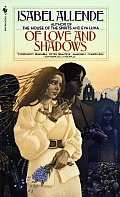 This is the story of a woman and a man who loved one another so deeply that they saved themselves from a banal existence. I have carried it in my memory, guarding it carefully so it would not be eroded by time, and it is only now, in the silent nights of this place, that I can finally tell it. I do it for them, and for others who have confided their lives to me saying: Here, write it, or it will be erased by the wind. -author's note
This is the story of a woman and a man who loved one another so deeply that they saved themselves from a banal existence. I have carried it in my memory, guarding it carefully so it would not be eroded by time, and it is only now, in the silent nights of this place, that I can finally tell it. I do it for them, and for others who have confided their lives to me saying: Here, write it, or it will be erased by the wind. -author's note



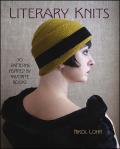 Subtitled "30 Patterns Inspired by Favorite Books,"
Subtitled "30 Patterns Inspired by Favorite Books," 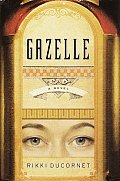 That afternoon I heard the curious vocabulary of the perfumer for the first time. Vulgar was said with a sneer, venomous shadow with reverence. A scent might be milky or metallic, sulphurous or chalky. One was to be worn with linen the color of sand or snow; one was prodigious, one had a velvet body, another's was deep red, or, if worn in stormy weather, red veering to black; one smelled of old silver and cedar forests, and yet another was symphonic--"unlike the stenches my rivals call perfume but which are no better than the urine of asses and camels!" The great perfumes of ancient Egypt: hekenou, medjet, sefet, and nekhenem he called: irresistible. Their names alone seemed to darken the garden air with a mysterious smoke. (38-39)
That afternoon I heard the curious vocabulary of the perfumer for the first time. Vulgar was said with a sneer, venomous shadow with reverence. A scent might be milky or metallic, sulphurous or chalky. One was to be worn with linen the color of sand or snow; one was prodigious, one had a velvet body, another's was deep red, or, if worn in stormy weather, red veering to black; one smelled of old silver and cedar forests, and yet another was symphonic--"unlike the stenches my rivals call perfume but which are no better than the urine of asses and camels!" The great perfumes of ancient Egypt: hekenou, medjet, sefet, and nekhenem he called: irresistible. Their names alone seemed to darken the garden air with a mysterious smoke. (38-39)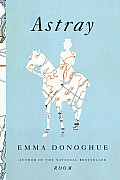 [F]or the past decade and a hlaf, I've been writing stories about travels to, within, and occasionally from the United States and Canada. Most of these travelers are real people who left traces in the historical record; a few are characters I invented to put a face on real incidents of border crossing. Many of them stray in several sense, when in the course of their journeys across geographical and political boundaries they find themselves stepping over other ones: law, sex, or race. Emigrants, immigrants, adventurers, and runaways--they fascinate me because they loiter on the margins, stripped of the markers of family and nation; they're out of place, out of their depth. (Afterword, 263)
[F]or the past decade and a hlaf, I've been writing stories about travels to, within, and occasionally from the United States and Canada. Most of these travelers are real people who left traces in the historical record; a few are characters I invented to put a face on real incidents of border crossing. Many of them stray in several sense, when in the course of their journeys across geographical and political boundaries they find themselves stepping over other ones: law, sex, or race. Emigrants, immigrants, adventurers, and runaways--they fascinate me because they loiter on the margins, stripped of the markers of family and nation; they're out of place, out of their depth. (Afterword, 263)